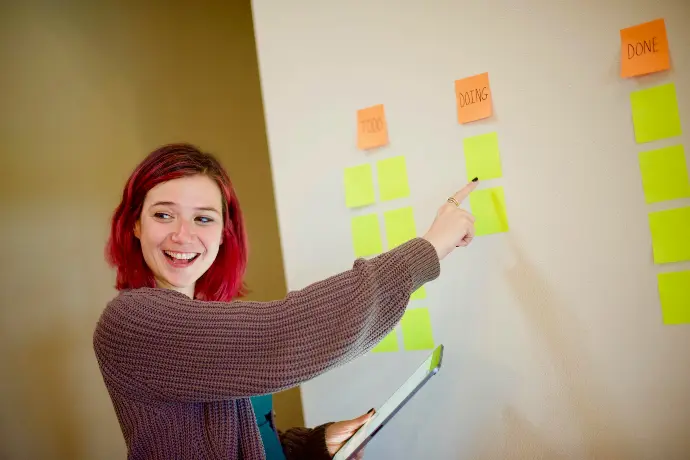Reach new heights
Start your online course today!
Skill up and have an impact! Your business career starts here.
Time to start a course.
Leaderboard
No leaderboard currently :(

Teach English as a Foreign Teacher and travel the world!
Teach English as a Foreign Teacher and travel the world!
Our extensive and practical TEFL course focuses not only on fundamentals of teaching, but also real life practical tools that will help you cross cultural bounderies, improve your communication skills and do an impeccable job regarless of the setting, number of students or resources available..
Our online TEFL certification course combines perfectly with our on-site course, allowing for blended learning if you opt for the onsite option.

| Units | Unit Title | Unit Description |
|---|---|---|
| 1 | Language Learning | Unit one focuses on five learning systems central to EFL English: grammar and syntax, lexis, phonology, functional language, and discourse. It also looks at learning preferences, offering suggestions on ways using visuals and audio as well as ways to make lessons more active. |
| 2 | Helping Learners Succeed | Unit two looks at ways to motivate students to read, write and speak. It gives strategies to help with pronunciation, stress, and intonation practice and looks at accuracy versus fluency, monitoring in the classroom and giving feedback. Finally, it looks at The Communicative Language Approach, teaching communicative functions, PPP and TTT. |
| 3 | Building Materials | In this unit, teachers learn how to adapt coursebook materials, work with graded readers and find out where to source authentic materials. They learn how to create their own card, board game, worksheet and writing activities for their students. They look at ways blended learning can enhance the EFL classroom and how to use images to promote speaking. |
| 4 | Learning, Planning an Assessment | Unit four looks at learning planning and assessment keeping the four skills in mind. It looks at ways to integrate listening and speaking, integrate reading and writing and focus on grammar. It also suggests ways to promote student autonomy using 21st Century Skills learning strategies. This unit also helps teachers devise templates for both daily long-term planning. It finished with a look at formative and summative assessment and how they can be used to evaluate student progress. |

Real Estate Course for Intermediate English Speakers

This intensive 1-month course is specifically designed for Mexican realtors aiming to enhance their English communication skills to better serve the Anglophone market, particularly Americans and Canadians. The course is structured to run for 3 hours every Saturday across 4 weeks, offering a comprehensive learning experience in key areas of real estate transactions.
What sets this course apart is its modular design, allowing for flexible entry points. Participants can start with any of the four modules, making it convenient to join the course at any cycle without missing out on the progressive learning experience. Each module is crafted to stand alone, covering distinct aspects of real estate dealings, from legal and financial terminology to marketing, sales communication, and advanced client relations.
This repeating course structure ensures that regardless of when you join, you will receive a complete and rounded education tailored to improving your proficiency in dealing with English-speaking clients. By the end of the course, you will be better equipped with the language skills and cultural understanding necessary to navigate the diverse needs of the Anglophone real estate market in Mexico.
Module 1: Real Estate English Essentials
Hour 1: Real Estate English (1 Hour)
- Basic Terminology: Key real estate terms and phrases used in property listings, marketing materials, and client interactions.
- Greetings and Introductions: Language for making a positive first impression with Anglophone clients.
Hour 2: Describing Properties (1 Hour)
- Property Types and Features: Vocabulary for describing various types of properties, including amenities and architectural styles.
- Descriptive Language Practice: Exercises in crafting compelling property descriptions for listings and verbal presentations.
Hour 3: Client Interaction Scenarios (1 Hour)
- Inquiries and Appointments: Phrases and questions for handling initial client inquiries and setting up appointments.
- Role-Playing: Simulated interactions for showing properties, discussing client needs, and answering common questions.
Module 2: Legal and Financial English in Real Estate
Hour 1: Legal Terminology in Real Estate Transactions (1 Hour)
- Key Legal Terms: Introduction to essential legal vocabulary related to contracts, agreements, and property rights.
- Document Overview: Understanding the purpose and key elements of common real estate documents.
Hour 2: Financial Vocabulary and Negotiations (1 Hour)
- Discussing Prices and Financing: Language for discussing financial aspects, including pricing, mortgages, and investment returns.
- Negotiation Phrases: Key expressions for negotiating terms, prices, and conditions with clients and other parties.
Hour 3: Case Studies and Role-Playing (1 Hour)
- Analyzing Transactions: Review and discussion of case studies focusing on legal and financial aspects of real estate deals.
- Practical Application: Role-playing exercises based on case studies to practice negotiation and discussion in English.
Module 3: Marketing and Sales Communication
Hour 1: Crafting Marketing Materials (1 Hour)
- Marketing Vocabulary: Key terms and phrases for creating effective marketing materials, including property listings and promotional content.
- Writing Workshop: Practice writing property descriptions and marketing messages that appeal to Anglophone clients.
Hour 2: Digital Communication and Social Media (1 Hour)
- Online Communication: Language and strategies for engaging with clients through email, social media, and other digital platforms.
- Content Creation: Tips and practice in creating engaging content for social media, tailored to real estate.
Hour 3: Presentation Skills and Client Meetings (1 Hour)
- Effective Presentations: Language and techniques for delivering compelling property presentations to clients.
- Meeting Scenarios: Role-playing exercises to practice conducting client meetings, presentations, and handling follow-up questions.
Module 4: Mastering Client Relations
Hour 1: Cultural Nuances and Advanced Conversational Skills (1 Hour)
- Cultural Nuances: Start with understanding cultural differences, expectations, and etiquette when dealing with Anglophone clients. Discuss key aspects of cultural sensitivity and awareness in real estate transactions.
- Advanced Conversational Skills: Transition into enhancing conversational English skills, focusing on fluency and accuracy when discussing complex real estate topics, market trends, and investment opportunities. Include practice in expressing opinions, making recommendations, and providing insights into the Puerto Vallarta real estate market.
Hour 2: Customer Service Excellence in Real Estate (1 Hour)
- Building Rapport: Techniques and language for building strong relationships with clients, including active listening skills, empathy, and personalization in service.
- Handling Objections and Providing Solutions: Learn specific phrases and strategies for addressing client concerns, negotiating terms, and presenting solutions in a professional manner. Role-play scenarios to practice these skills in real-life contexts.
Hour 3: Continuous Learning and Professional Development (1 Hour)
- Resources for Ongoing Improvement: Introduce various resources for continuous learning, such as online platforms, English language courses focused on real estate, and professional development opportunities.
- Practical Application and Feedback: Engage in interactive activities that allow for the application of learned skills, with peers and instructors providing constructive feedback. Discuss setting personal goals for language improvement and strategies for integrating English practice into daily work activities.

Real Estate Course for Intermediate English Speakers

This intensive 1-month course is specifically designed for Mexican realtors aiming to enhance their English communication skills to better serve the Anglophone market, particularly Americans and Canadians. The course is structured to run for 3 hours every Saturday across 4 weeks, offering a comprehensive learning experience in key areas of real estate transactions.
What sets this course apart is its modular design, allowing for flexible entry points. Participants can start with any of the four modules, making it convenient to join the course at any cycle without missing out on the progressive learning experience. Each module is crafted to stand alone, covering distinct aspects of real estate dealings, from legal and financial terminology to marketing, sales communication, and advanced client relations.
This repeating course structure ensures that regardless of when you join, you will receive a complete and rounded education tailored to improving your proficiency in dealing with English-speaking clients. By the end of the course, you will be better equipped with the language skills and cultural understanding necessary to navigate the diverse needs of the Anglophone real estate market in Mexico.
Module 1: Real Estate English Essentials
Hour 1: Real Estate English (1 Hour)
- Basic Terminology: Key real estate terms and phrases used in property listings, marketing materials, and client interactions.
- Greetings and Introductions: Language for making a positive first impression with Anglophone clients.
Hour 2: Describing Properties (1 Hour)
- Property Types and Features: Vocabulary for describing various types of properties, including amenities and architectural styles.
- Descriptive Language Practice: Exercises in crafting compelling property descriptions for listings and verbal presentations.
Hour 3: Client Interaction Scenarios (1 Hour)
- Inquiries and Appointments: Phrases and questions for handling initial client inquiries and setting up appointments.
- Role-Playing: Simulated interactions for showing properties, discussing client needs, and answering common questions.
Module 2: Legal and Financial English in Real Estate
Hour 1: Legal Terminology in Real Estate Transactions (1 Hour)
- Key Legal Terms: Introduction to essential legal vocabulary related to contracts, agreements, and property rights.
- Document Overview: Understanding the purpose and key elements of common real estate documents.
Hour 2: Financial Vocabulary and Negotiations (1 Hour)
- Discussing Prices and Financing: Language for discussing financial aspects, including pricing, mortgages, and investment returns.
- Negotiation Phrases: Key expressions for negotiating terms, prices, and conditions with clients and other parties.
Hour 3: Case Studies and Role-Playing (1 Hour)
- Analyzing Transactions: Review and discussion of case studies focusing on legal and financial aspects of real estate deals.
- Practical Application: Role-playing exercises based on case studies to practice negotiation and discussion in English.
Module 3: Marketing and Sales Communication
Hour 1: Crafting Marketing Materials (1 Hour)
- Marketing Vocabulary: Key terms and phrases for creating effective marketing materials, including property listings and promotional content.
- Writing Workshop: Practice writing property descriptions and marketing messages that appeal to Anglophone clients.
Hour 2: Digital Communication and Social Media (1 Hour)
- Online Communication: Language and strategies for engaging with clients through email, social media, and other digital platforms.
- Content Creation: Tips and practice in creating engaging content for social media, tailored to real estate.
Hour 3: Presentation Skills and Client Meetings (1 Hour)
- Effective Presentations: Language and techniques for delivering compelling property presentations to clients.
- Meeting Scenarios: Role-playing exercises to practice conducting client meetings, presentations, and handling follow-up questions.
Module 4: Mastering Client Relations
Hour 1: Cultural Nuances and Advanced Conversational Skills (1 Hour)
- Cultural Nuances: Start with understanding cultural differences, expectations, and etiquette when dealing with Anglophone clients. Discuss key aspects of cultural sensitivity and awareness in real estate transactions.
- Advanced Conversational Skills: Transition into enhancing conversational English skills, focusing on fluency and accuracy when discussing complex real estate topics, market trends, and investment opportunities. Include practice in expressing opinions, making recommendations, and providing insights into the Puerto Vallarta real estate market.
Hour 2: Customer Service Excellence in Real Estate (1 Hour)
- Building Rapport: Techniques and language for building strong relationships with clients, including active listening skills, empathy, and personalization in service.
- Handling Objections and Providing Solutions: Learn specific phrases and strategies for addressing client concerns, negotiating terms, and presenting solutions in a professional manner. Role-play scenarios to practice these skills in real-life contexts.
Hour 3: Continuous Learning and Professional Development (1 Hour)
- Resources for Ongoing Improvement: Introduce various resources for continuous learning, such as online platforms, English language courses focused on real estate, and professional development opportunities.
- Practical Application and Feedback: Engage in interactive activities that allow for the application of learned skills, with peers and instructors providing constructive feedback. Discuss setting personal goals for language improvement and strategies for integrating English practice into daily work activities.

Teach English as a Foreign Teacher and travel the world!
Teach English as a Foreign Teacher and travel the world!
Our extensive and practical TEFL course focuses not only on fundamentals of teaching, but also real life practical tools that will help you cross cultural bounderies, improve your communication skills and do an impeccable job regarless of the setting, number of students or resources available..
Our online TEFL certification course combines perfectly with our on-site course, allowing for blended learning if you opt for the onsite option.

| Units | Unit Title | Unit Description |
|---|---|---|
| 1 | Language Learning | Unit one focuses on five learning systems central to EFL English: grammar and syntax, lexis, phonology, functional language, and discourse. It also looks at learning preferences, offering suggestions on ways using visuals and audio as well as ways to make lessons more active. |
| 2 | Helping Learners Succeed | Unit two looks at ways to motivate students to read, write and speak. It gives strategies to help with pronunciation, stress, and intonation practice and looks at accuracy versus fluency, monitoring in the classroom and giving feedback. Finally, it looks at The Communicative Language Approach, teaching communicative functions, PPP and TTT. |
| 3 | Building Materials | In this unit, teachers learn how to adapt coursebook materials, work with graded readers and find out where to source authentic materials. They learn how to create their own card, board game, worksheet and writing activities for their students. They look at ways blended learning can enhance the EFL classroom and how to use images to promote speaking. |
| 4 | Learning, Planning an Assessment | Unit four looks at learning planning and assessment keeping the four skills in mind. It looks at ways to integrate listening and speaking, integrate reading and writing and focus on grammar. It also suggests ways to promote student autonomy using 21st Century Skills learning strategies. This unit also helps teachers devise templates for both daily long-term planning. It finished with a look at formative and summative assessment and how they can be used to evaluate student progress. |